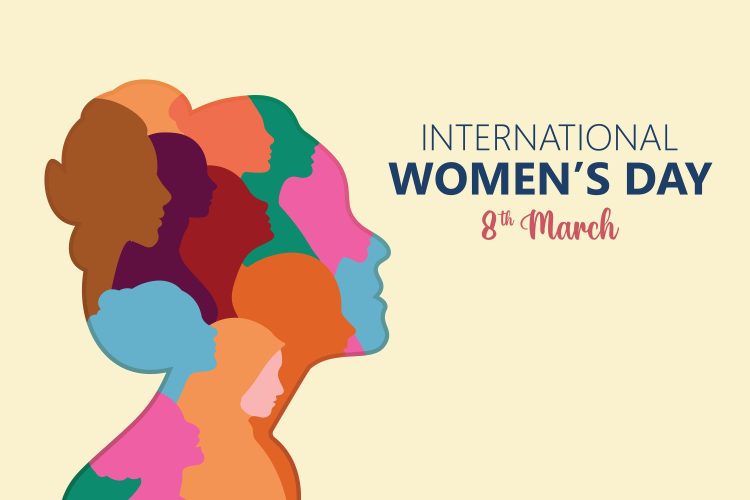International Women’s Day: segueing into everyday
- Like
- Digg
- Del
- Tumblr
- VKontakte
- Buffer
- Love This
- Odnoklassniki
- Meneame
- Blogger
- Amazon
- Yahoo Mail
- Gmail
- AOL
- Newsvine
- HackerNews
- Evernote
- MySpace
- Mail.ru
- Viadeo
- Line
- Comments
- Yummly
- SMS
- Viber
- Telegram
- Subscribe
- Skype
- Facebook Messenger
- Kakao
- LiveJournal
- Yammer
- Edgar
- Fintel
- Mix
- Instapaper
- Copy Link
Posted: 7 March 2025 | Mecca Ibrahim | No comments yet
Mecca Ibrahim, co-founder of Women In The Food Industry, argues that gender equality in food production is not just a moral issue but a business necessity. With progress slow and setbacks increasing, the industry must act now to drive meaningful change.


Mecca Ibrahim, co-founder of Women In The Food Industry and member of the New Food advisory board, addresses the urgent need for equality within food production, arguing it’s a business imperative and not just a one-day platitude for International Women’s Day.
Breaking barriers in food production: why gender parity can’t wait
The World Economic Forum estimates that, at the current rate of progress, it will take until 2158 to achieve full gender parity. That’s 134 years from now. A child born today will never see an equitable world in their lifetime unless we accelerate change. For the food production industry – one of the world’s largest and most influential sectors – this should be a wake-up call. We cannot afford to wait. Equality, diversity and inclusion (EDI) are not just moral imperatives; they are financial and operational necessities that can drive innovation, resilience and economic growth.
The state of gender inequality in food production
Women play a critical role in the food industry, from farm workers and entrepreneurs to C-suite executives. Yet, they remain underrepresented in leadership positions and often face barriers such as pay gaps, limited access to funding and systemic biases. According to research from McKinsey & Company, companies in the top quartile for gender diversity are 25 percent more likely to financially outperform their less diverse counterparts. Despite this, many food businesses still lag behind in making tangible commitments to gender parity.
Recent events have only served to underscore the fragility of progress. The rollback of EDI initiatives in some corporate and political circles – exemplified by Donald Trump’s apparent anti-EDI stance in the US – suggests that hard-won gains cannot be taken for granted. In this context, the food industry must take a stand, reinforcing that diversity is not a mere passing trend but a core value that benefits businesses and communities alike.
For food production businesses, the takeaway is clear: embracing diversity isn’t just the right thing to do – it’s the smart thing to do
Decisive action
So, what can we do – as individuals, organisations and communities – to bridge the gender gap faster?
- Individuals: advocate and mentor
Each of us has a role to play in fostering an equitable industry. Advocacy can start with something as simple as speaking up when we see disparities or supporting women-owned food businesses. Mentorship is another powerful tool. Women in leadership positions must actively mentor and sponsor the next generation, providing guidance and opportunities for career advancement.
- Organisations: implement meaningful policies
Companies must move beyond performative gestures and embrace real change. This includes:
- Pay transparency and equity audits to identify and close wage gaps
- Flexible work policies that acknowledge caregiving responsibilities, benefitting all employees
- Gender-balanced leadership pipelines, ensuring that women are not only recruited but retained and promoted
- Access to funding for female food entrepreneurs, addressing the well-documented investment gap.
Businesses should also take inspiration from leading brands that are already making strides in this area. For instance, some food companies have successfully increased gender diversity in leadership through targeted recruitment, inclusive workplace policies and internal EDI training programmes.
- Communities: support and celebrate women year-round
International Women’s Day is a valuable moment for awareness, but gender equality must be a daily commitment. Food industry events, trade fairs and awards should actively spotlight female talent. Community-driven initiatives – such as food incubators focused on women-led startups – can help dismantle systemic barriers and provide practical support.
Consumer power is also crucial. Shoppers and food service providers can make conscious choices to support women-led food businesses and farms. Furthermore, retailers and distributors should ensure that their supply chains reflect the diversity they claim to champion.
The financial case for gender equality in food businesses
Let’s be clear: diversity is not just about fairness – it’s about business growth. Studies consistently show that diverse companies are more innovative, productive and financially successful.
- Research by Boston Consulting Group found that companies with above-average diversity in leadership generated 45 percent more innovation revenue than those with below-average diversity
- A 2023 report by the Peterson Institute for International Economics found that companies with at least 30 percent female leadership see a six percent increase in net profit margins
- Women-led food businesses often focus on sustainable practices and community impact, both of which align with shifting consumer priorities.
For food production businesses, the takeaway is clear: embracing diversity isn’t just the right thing to do – it’s the smart thing to do.
Conclusion: equality shouldn’t be a once-a-year conversation
International Women’s Day serves as an important reminder of the work that remains, but it cannot be the only time we focus on gender equality. Every decision – whether it’s hiring, investment, sourcing or product development – should be made with inclusivity in mind.
As an industry that feeds the world, we must ensure that we are also nourishing opportunities for all. From the boardroom to the farm, from the factory to the professional kitchen, every sector within food production has the power to drive meaningful change. The question is no longer whether gender equality should be a priority – it’s how quickly we’re willing to make it a reality. And if we truly commit, we won’t have to wait until 2158 to see it.
About the author






